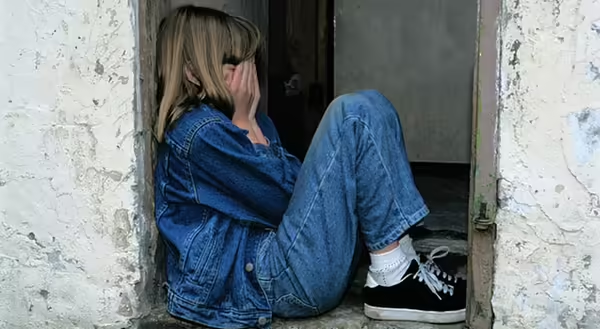
May is Mental Health Awareness Month. This is the perfect time to discuss something that hits very close to home for me. The National Institute of Mental Health reports that nearly one in five adults live with a mental health challenge and one in twenty lives with a serious mental health challenge like Major Depressive Disorder, Anxiety Disorder, or Schizophrenia. What happens to their children? The Centers for Disease Control and Prevention reports that one in fourteen of our children has a caregiver with poor mental health, and those children are more likely to have poor overall health or live with their own mental health challenge or developmental disability.
Most likely, you know a child (a neighbor, a relative, a student, or a friend of your own child) who has a parent or caregiver living with a mental health challenge. Maybe you have seen their loneliness, their fear, or various other struggles. You can make a difference in the life of that child! There were many teachers, neighbors, and relatives who made a difference in my life…..I was one of those “one in fourteen.” I had a caregiver with Paranoid Schizophrenia which resulted in being exposed to their delusions, hallucinations, and very strange behaviors. Worst of all, I lived with the UNINTENTIONAL emotional abuse that occurred because of those behaviors. I felt unwanted, unheard, and invisible…. unloved. It was the social supports, the people who made me feel valued and who helped me develop my own set of coping skills, that so greatly impacted my life!
How can you help? Studies show that increased social supports can improve the mental health of these children. Social support is defined in part as “emotional support that allows the individual to feel valued, accepted, and understood.” How can you provide the emotional support that makes a child feel valued, accepted and understood? If you are a neighbor, relative, teacher, or friend of a child whose parent lives with a mental health challenge, here are just a few simple suggestions:
- Ask questions and listen: Ask them about their day. Ask them how they are doing at school. Ask about sports, hobbies, or even world events (according to age). Their caregiver may be unable to engage in the child’s life, so they may not be having these conversations at home. This can set the stage for them to come to you if they need help.
- Reassure them of their caregiver’s love: When the opportunity arises, say things like, “I know that your (caregiver) loves you very much.” They may not be hearing this at home.
- Spend time with them: If you are a neighbor, family, or friend, allowing them to spend time with you and your family offers them hope. Invite them on a family outing or to participate in a family event. This may allow them to see what it’s like to not be afraid or worried…what it’s like to be a kid. They can spend that time not worrying about adult things since they may be playing the role of the adult in their home.
- Assure them that the situation is not their fault: This is a tricky one and can only be done when you have been included in the information about the child’s situation and only when the child has expressed fault or shame regarding their caregiver’s mental health challenge. Parents or caregivers living with a mental health challenge may, out of confusion, anger, or frustration, blame the child. The child may also feel shame for their caregiver’s behaviors. “It’s not your fault. It’s going to be okay.” These are words they may never hear at home but can bring a little healing to their hurting heart.
Thank you to all the teachers who care and go the extra mile, to all the neighbors and friends who spend time with these kiddos, and their extended families who have them in their homes, take them on vacations or to church! You know who you are… you play a part in changing lives!
Please call the 24-hour Child Abuse Hotline at 800-25-ABUSE (800-252-2873) if you suspect that a child has been harmed or is at risk of being harmed by abuse or neglect. If you believe a child is in immediate danger of harm, call 911 first.
Sources:
National Institute for Mental Health: Mental Illness
Centers for Disease Control: Mental health of children and parents - a strong connection
Springer Link: Social Support as Predictor of Psychopathology in the Adolescent Offspring of Psychiatric Patients
National Institute for Mental Health: Which traits predict elevated distress during the Covid-19 pandemic?
American Psychological Association Dictionary: Social support definition
Psych Alive: 6 Things Kids Need From Adults to Feel Valued
Social Work Today: Reaching Out to Children of Parents With Mental Illness